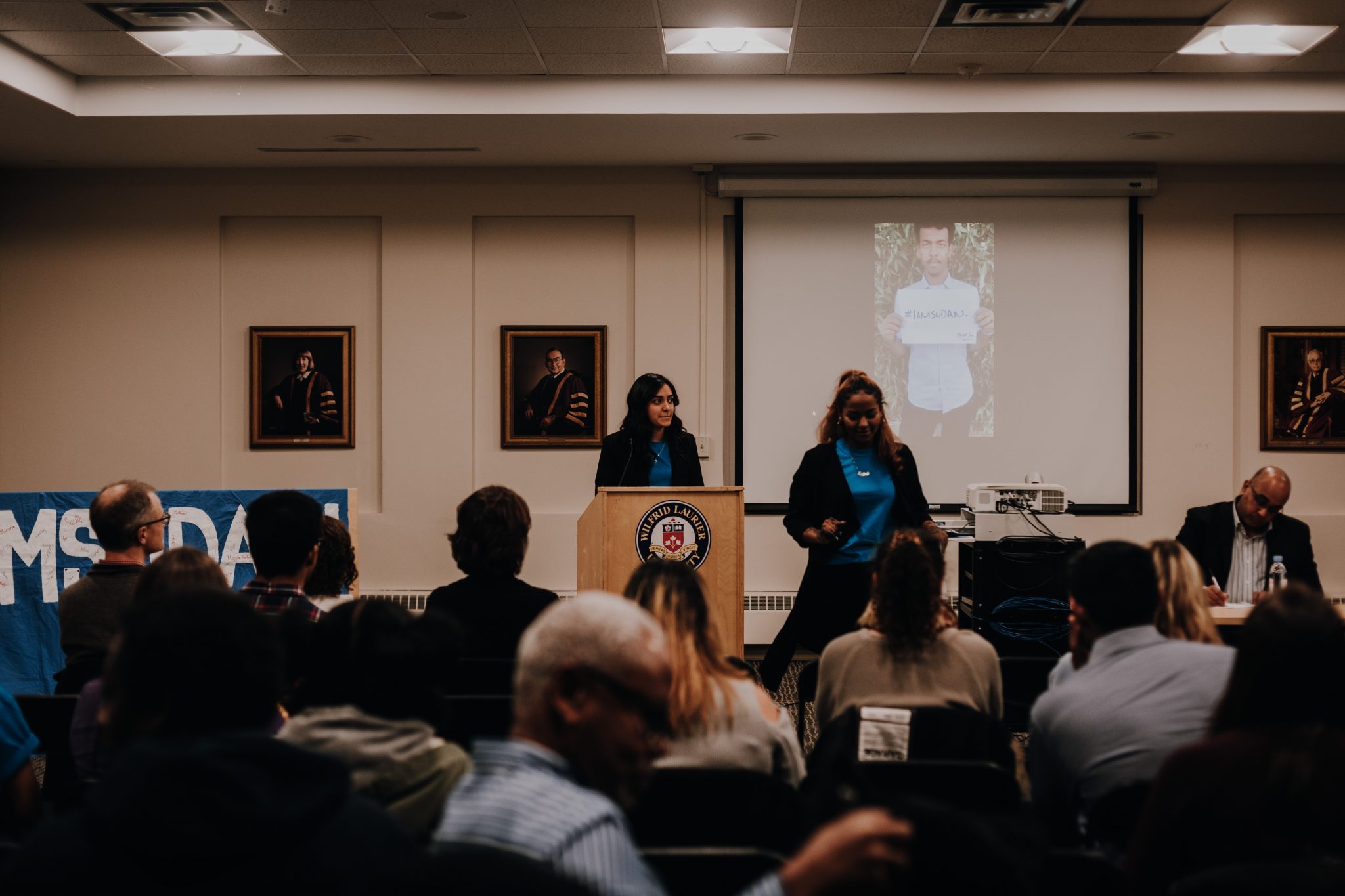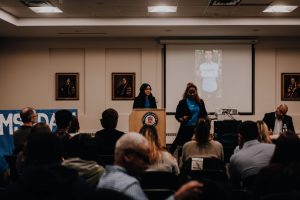Democracy activism events series ends with #IamSudan panel


Led by two Laurier students, a series of events centered around democracy activism was capped off on Friday with an #IamSudan Panel aimed at informing and engaging the community on the conflict in the country.
The #IamSudan movement first began in June, as individuals on social media adopted the hashtag in response to the Sudanese military’s massacre of civilian protestors.
The mission of the events was threefold: involve, engage and aid.
What started as an inquiry directed at Laurier’s Global Studies Instagram page grew into a series of events that brought together multiple departments, clubs, community leaders and students in the Waterloo region.
In addition to the panel, a students hosted a booth in the concourse, where passersby were able to learn about the conflict in Sudan as well as raise funds through a bake sale, the proceeds of which were donated to War Child.
The evening began with statements from the three guest speakers.
Dr. Khalid Ahmed, the first speaker, is a lecturer in the African Studies program at the University of Toronto and has focused his research on politics and peace in Africa.
He detailed the events in South Sudan, from its conception in 2011, the power vacuum that incited conflict between the nation’s rival militias and, finally, a peace agreement which outlined the formation of a unified transitional government.
We wanted it to be youth led event to show youths that they’re able to do the exact same thing and that there’s no difference between us and them.
– Suha Osman, one of the student organisers of the event
Dr. Ahmed spoke of the fragility of the agreement, revealed the pernicious nature of foreign intervention in the region and illuminated next steps for the country and its people.
The next speaker, Dalia Elawad, a PhD candidate in English and Film Studies at Laurier, highlighted the influence of art in the Sudanese Revolution.
From an academic’s perspective, she also spoke of her country’s national identity and the role of artists in shaping it.
The final speaker was a Sudanese student from the University of Waterloo, Mustafa Ismail.
An activist in the local community in Waterloo as well as in the streets of Sudan, Ismail spoke about the importance and effects of social action.
He called for students to find and mobilize around issues that they were passionate about.
Towards the end of the event, the two student organizers, Suha Osman and Oshish Ungras, were met by praise from faculty and applause from peers.
“We wanted it to be youth led event to show youths that they’re able to do the exact same thing and that there’s no difference between us and them,” Osman said.
As a Sudanese Canadian, the conflict in Sudan was a personal one for Osman. In her statement, she spoke about the privilege she has gained, and that all students possess, from the ownership of a Canadian passport.
“Our golden ticket, our privilege, is just the fact that we are able to wake up here in Canada and be able to breathe fresh air and be able to just see our friends and our family,” Osman said.
Together, Osman and Ungras were not only able to translate their energy into action, but also provided an outlet for students to become more involved and better informed.
Ungras, the co-president of Laurier’s World University Service of Canada said, “When we talk to people, they are actually really interested and really passionate about the same things that we are. But oftentimes they lack the mobilization to seek help to put their plan into action.”
While supporting the protests in Sudan, students have also in many ways emulated them.
“The entire protests [in Sudan] were led by youth and women at the forefront of this. And what’s really great is that we had youth and women at the forefront of our activism here as well,” Ungras said.
Both Osman and Ungras encourage students to learn about the conflict in Sudan and to find ways to become involved in issues that speak to them, whether it comes through faculty, clubs or peers.
Speaking to activism and politics, “It can often be a contentious topic. But you know what? Democracy is not,” Ungras said.


